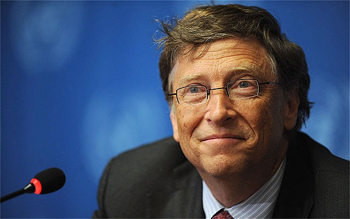 New Delhi, Jan 22: There will be no poor countries in this world by 2035 as these nations will benefit from innovations of their rich counterparts, world's richest man Bill Gates has said.
New Delhi, Jan 22: There will be no poor countries in this world by 2035 as these nations will benefit from innovations of their rich counterparts, world's richest man Bill Gates has said.
"I am optimistic enough about this that I am willing to make a prediction. By 2035, there will be almost no poor countries (as per the current definition) left in the world," Gates said in the Bill & Melinda Gates Foundation's annual letter published today.
"Almost all countries will be what we now call lower- middle income or richer. Countries will learn from their most productive neighbours and benefit from innovations like new vaccines, better seeds, and the digital revolution. Their labour forces, buoyed by expanded education, will attract new investments," he said.
By 2035 most countries will have higher per-capita income than what China has right now.
"More than 70 per cent of countries will have a higher per-person income than China does today. Nearly 90 per cent will have a higher income than India does today," he said.
Gates said that the divide between rich and poor countries has been filled in by China, India, Brazil, and others.
Since 1960, China's real income per person has gone up eight-fold. India's has quadrupled and Brazil's has almost quintupled, he said.
He voted against the "three myths" that block progress for the poor -- poor countries are doomed to stay poor, foreign aid is a big waste; and saving lives leads to over-population.
"The belief that the world is getting worse, that we can't solve extreme poverty and disease, isn't just mistaken. It is harmful," Gates wrote. "By almost any measure, the world is better than it has ever been. In two decades it will be better still."





Comments
Add new comment